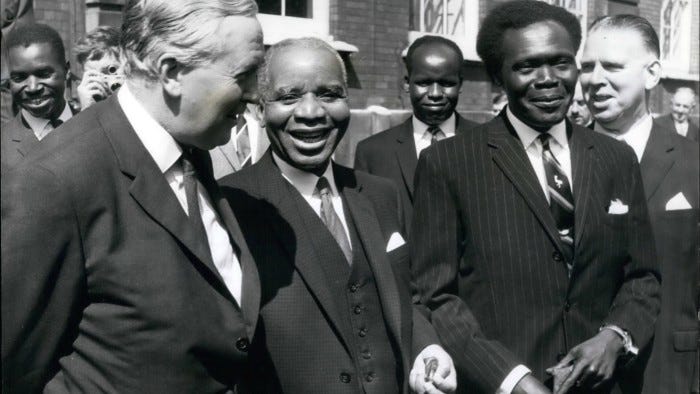Kamuzu Banda's "Double-Faced" Legacy Haunts Modern Malawi
This "double-faced" tendency persists as modern leaders live "extravagantly" while the nation grapples with a lack of basic amenities for its citizenry – a situation described as "sadistic opulence."
LILONGWE, Malawi- As Malawi celebrated the birthday of its "father and founder" Dr. Hastings Kamuzu Banda on May 14th, the nation grappled with the complex "double-faced" legacy of his three-decade reign, writes Justin Mthawanji.
Banda, a "shrewd" politician who championed Pan-Africanism while "glorifying" English etiquette, embodied contrasting traits that have shaped Malawi's contemporary leadership.
Hailed as a developmental "visionary", he was also a "sadistic despot" who "ruthlessly eliminated" political opponents.
Contemporary leaders have selectively emulated Banda's most "sinister" qualities – his "sadism" and "arrogance" – while overlooking the positive aspects of his "patriotism" and commitment to progress.
The "opulent" lifestyle Banda maintained in the midst of "widespread poverty" epitomized this duality.
"Infamous" for his "lavish indulgences", he "audaciously" drove a Rolls Royce flanked by bare-footed praise singers during an era when ordinary Malawians lived in "destitution", walking "literally naked" in his own words.
This "double-faced" tendency persists as modern leaders live "extravagantly" while the nation grapples with a lack of basic amenities for its citizenry – a situation described as "sadistic opulence."
Banda's foreign policy further exemplified his "contradictory" nature. As the only African nation led by a black leader to maintain ties with "apartheid" South Africa and support the Western-backed RENAMO in Mozambique's "civil war", Malawi faced "diplomatic isolation".
Banda justified these "controversial" alignments as necessary to secure mining jobs for Malawians through the Mthandizi "labor export" deal. His "loyalty" was rewarded when the apartheid regime built Lilongwe's capital city, while the CIA aided in "capturing" his political foes.
Echoing this pattern, Malawi's current foreign policy has raised "eyebrows" by supporting Israel's activities despite global calls for a "ceasefire" in Gaza, allegedly to facilitate "labor export" deals for Malawian youth.
As Malawians reflected on Banda's "complicated" legacy on May 16th, concerns lingered about repeating the mistakes of a leader whose "double-faced" persona combined "visionary" achievements with "authoritarian" excesses and conflicting allegiances.



